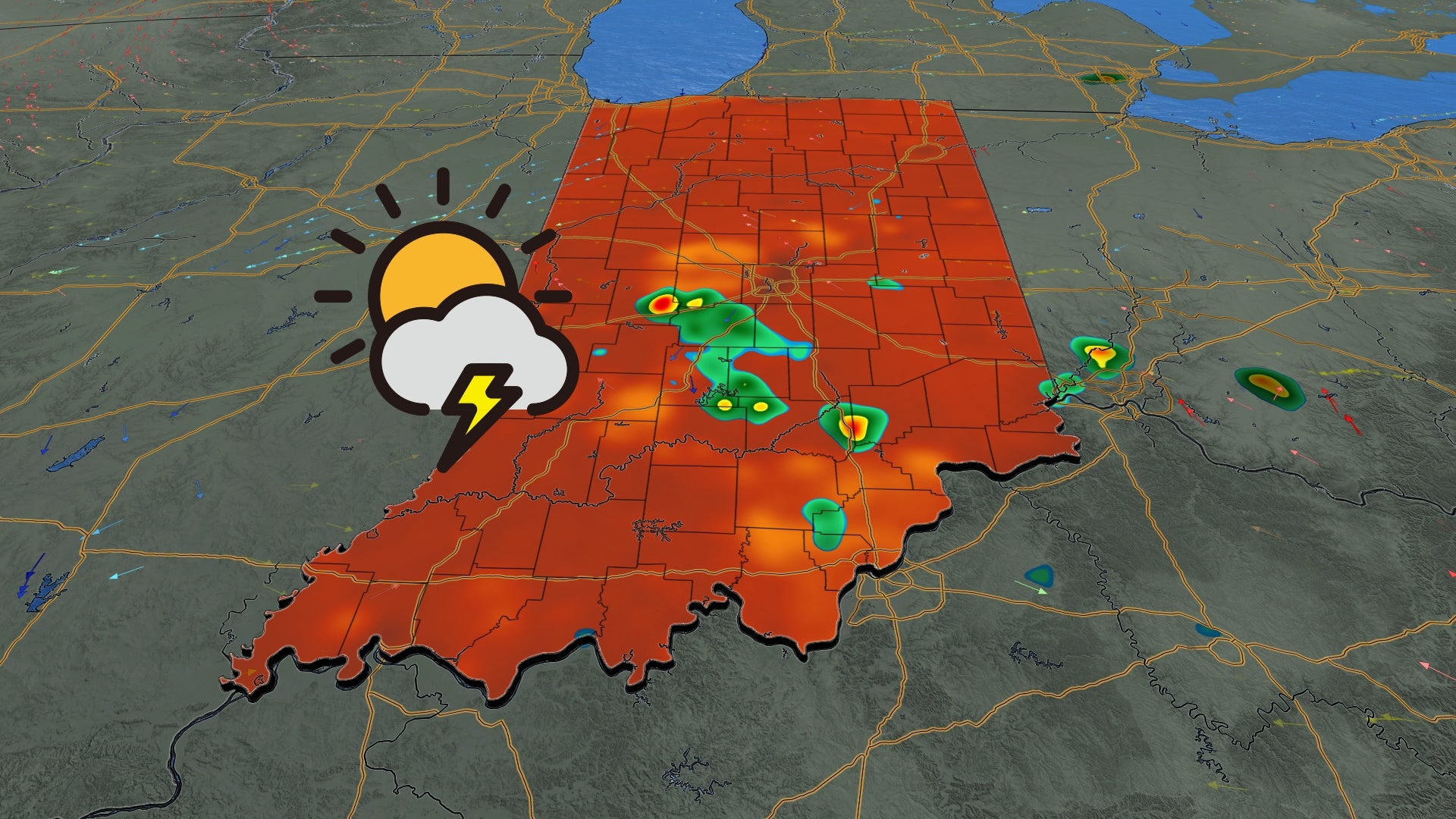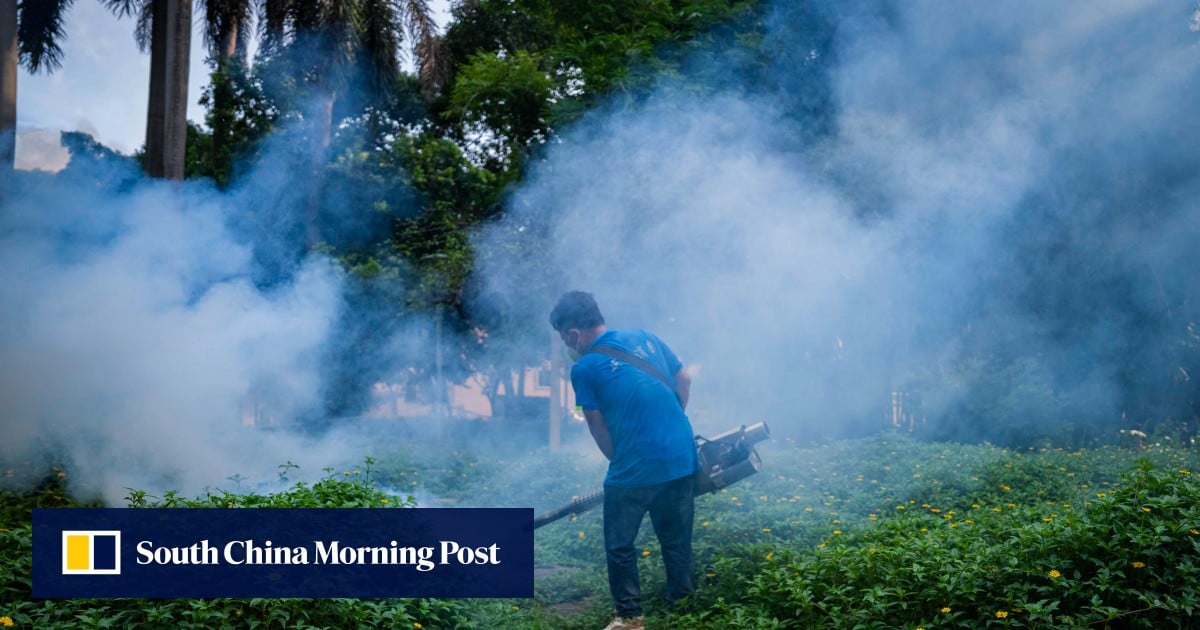Chikungunya In China: What Travelers Need To Know

Welcome to your ultimate source for breaking news, trending updates, and in-depth stories from around the world. Whether it's politics, technology, entertainment, sports, or lifestyle, we bring you real-time updates that keep you informed and ahead of the curve.
Our team works tirelessly to ensure you never miss a moment. From the latest developments in global events to the most talked-about topics on social media, our news platform is designed to deliver accurate and timely information, all in one place.
Stay in the know and join thousands of readers who trust us for reliable, up-to-date content. Explore our expertly curated articles and dive deeper into the stories that matter to you. Visit Best Website now and be part of the conversation. Don't miss out on the headlines that shape our world!
Table of Contents
Chikungunya in China: What Travelers Need to Know
Chikungunya virus, a mosquito-borne illness causing debilitating joint pain, has been detected in China, raising concerns for travelers. While not yet widespread, understanding the risks and preventative measures is crucial for anyone planning a trip to the country. This article provides essential information to ensure a safe and healthy journey.
Understanding the Chikungunya Virus
Chikungunya, pronounced chik-un-GUN-yah, is a viral infection transmitted primarily through the bite of infected Aedes mosquitoes, the same species that spreads Zika and dengue fever. Symptoms typically appear within a few days of being bitten and include:
- High fever: Often accompanied by chills.
- Severe joint pain: This is the hallmark symptom, often affecting hands, wrists, ankles, and feet. The pain can be debilitating and last for weeks or even months.
- Muscle pain: Aching muscles are common.
- Headache: Often intense.
- Nausea and vomiting: Gastrointestinal symptoms are also possible.
- Rash: A maculopapular rash can develop.
While most people recover fully, some experience long-term joint pain (chronic arthralgia). Severe cases, particularly in infants, the elderly, and those with underlying health conditions, may require hospitalization. There is currently no specific antiviral treatment for Chikungunya; treatment focuses on managing symptoms. .
Chikungunya Risk in China: Where and When?
The presence of Chikungunya in China is still relatively limited, and the risk varies geographically and seasonally. Mosquito populations, and therefore the risk of transmission, are typically higher during warmer months (spring and summer). Specific regions with reported cases should be monitored closely through official health advisories issued by the Chinese government and international organizations like the World Health Organization (WHO). Always check for the latest travel advisories before and during your trip.
Protecting Yourself from Chikungunya in China:
Prevention is key. Here's how to minimize your risk of contracting Chikungunya while traveling in China:
- Mosquito Repellent: Use a strong, EPA-registered repellent containing DEET, picaridin, IR3535, or oil of lemon eucalyptus. Reapply frequently, especially after swimming or sweating.
- Protective Clothing: Wear long-sleeved shirts, long pants, and socks, especially during dawn and dusk when mosquitoes are most active.
- Mosquito Nets: Use insecticide-treated bed nets, particularly if staying in areas with inadequate window screens or air conditioning.
- Accommodation Choice: Consider staying in hotels or resorts with good air conditioning and screened windows.
- Consult Your Doctor: Discuss your travel plans with your physician. They can advise on necessary vaccinations and provide further guidance on preventing mosquito-borne illnesses.
What to Do if You Develop Symptoms:
If you develop symptoms suggestive of Chikungunya after returning from China, seek medical attention immediately. Inform your doctor about your recent travel history to help them make an accurate diagnosis and provide appropriate care. Early diagnosis and management are crucial for minimizing the duration and severity of symptoms.
Staying Informed:
Staying updated on the latest information regarding Chikungunya in China is essential. Regularly check the websites of the Chinese Centers for Disease Control and Prevention (CDC China), the World Health Organization (WHO), and your own country's health authorities for travel advisories and health alerts.
Conclusion:
While the risk of contracting Chikungunya in China is not currently high for all areas, travelers should take proactive steps to protect themselves. By following the preventative measures outlined above and staying informed, you can significantly reduce your risk and enjoy a safe and healthy trip to China. Remember, prevention is always the best medicine when it comes to mosquito-borne illnesses.

Thank you for visiting our website, your trusted source for the latest updates and in-depth coverage on Chikungunya In China: What Travelers Need To Know. We're committed to keeping you informed with timely and accurate information to meet your curiosity and needs.
If you have any questions, suggestions, or feedback, we'd love to hear from you. Your insights are valuable to us and help us improve to serve you better. Feel free to reach out through our contact page.
Don't forget to bookmark our website and check back regularly for the latest headlines and trending topics. See you next time, and thank you for being part of our growing community!
Featured Posts
-
 Dolphins Zach Sieler Extension Contract Details And Impact Analysis
Aug 06, 2025
Dolphins Zach Sieler Extension Contract Details And Impact Analysis
Aug 06, 2025 -
 Injury Update Lionel Messis Muscle Problem And Expected Recovery
Aug 06, 2025
Injury Update Lionel Messis Muscle Problem And Expected Recovery
Aug 06, 2025 -
 August 2025 Central Indiana Braces For Warm Humid Week Starting Aug 5
Aug 06, 2025
August 2025 Central Indiana Braces For Warm Humid Week Starting Aug 5
Aug 06, 2025 -
 Guangdong Fights Back New Strategies To Combat Chikungunya Fever
Aug 06, 2025
Guangdong Fights Back New Strategies To Combat Chikungunya Fever
Aug 06, 2025 -
 Historic Win Marlins Take First Ever Series Sweep Against Yankees
Aug 06, 2025
Historic Win Marlins Take First Ever Series Sweep Against Yankees
Aug 06, 2025
Latest Posts
-
 Netanyahus Gaza War Warning Military Chiefs Push Back
Aug 07, 2025
Netanyahus Gaza War Warning Military Chiefs Push Back
Aug 07, 2025 -
 Expert Analysis Joel Klatt Ranks 2025 College Football Teams Penn States Outlook
Aug 07, 2025
Expert Analysis Joel Klatt Ranks 2025 College Football Teams Penn States Outlook
Aug 07, 2025 -
 Aaron Judge To Play Tuesday For Yankees Boone Announces
Aug 07, 2025
Aaron Judge To Play Tuesday For Yankees Boone Announces
Aug 07, 2025 -
 Los Angeles Chargers Perryman Released From Custody Case Closed
Aug 07, 2025
Los Angeles Chargers Perryman Released From Custody Case Closed
Aug 07, 2025 -
 Raiders Deal Rock Ya Sin Eagles Get Cornerback In Exchange For Defensive Tackle
Aug 07, 2025
Raiders Deal Rock Ya Sin Eagles Get Cornerback In Exchange For Defensive Tackle
Aug 07, 2025
